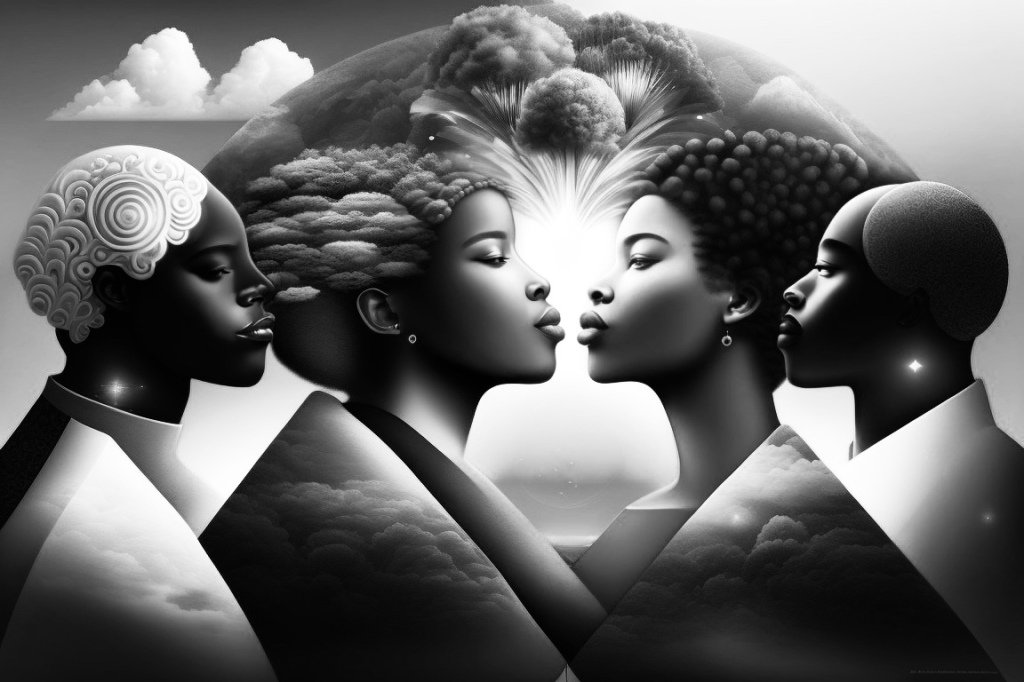It was a bright and sunny day in the year 3021, and world was a completely different place from what it used to be. People lived in peace and harmony, free from the prejudices and conflicts that once plagued the world. In this world, people had evolved to be more conscious and intelligent. Their brains had developed larger neo cortex regions, giving them greater control over their thoughts and emotions. This, coupled with their increased productivity and understanding, had allowed them to unravel the mysteries of the universe and solve previously unsolved problems. The progress that humanity had made was evident in every aspect of life, from the towering skyscrapers to the technologically advanced transportation systems.
Dr. Arqi, a renowned evolutionary scientist, was giving a lecture on the evolution of human consciousness and co-operation at Department of Anthropology, University of Delhi. When she entered the University through gate number 1 she saw, along with the Indian National Flag, the Flag of Earth, designed by McConnell in 1969, fluttered proudly in the wind. As she walked into the packed lecture hall, she couldn’t help but feel proud of the journey humanity had taken to reach this point.
“Good morning everyone,” she began, “Today, I’m going to take you on a journey through the past and show you how we, as a species, have evolved to become the beings we are today.”
The students listened in awe as Dr. Arqi spoke of the journey of human consciousness and how it had played a crucial role in shaping the world we live in today. She spoke of the discovery of a lost civilization from the 21st century, which had been buried beneath the sands of the Thar Desert for centuries. The ruins had provided a wealth of information about the past, including the evolutionary processes that had led to the development of the human brain and consciousness.
“Back in the 21st century,” she said, “People lived in a world filled with conflict and fear. They were divided by religion, caste, culture, and region. Wars were fought over resources, land, and political power. It was a dark time in our history, but it was also a time of great change.”
Dr. Arqi went on to explain how the wars and conflicts of the past had a profound impact on human evolution. In the early years of the 3rd millennium, the world was ravaged by war, as nations fought for superiority. But as the conflict raged on, a small percentage of the population began to evolve beyond these petty prejudices. These individuals were characterized by their enhanced consciousness, more activity in neo-cortex brain region, and they had greater ability to cooperate and a constant desire for peace. This cooperative behaviour had driven the evolution of consciousness and brain size. It was a slow process, but over time, the gene of these cooperative individuals became more dominant in the population. These traits became dominant in the population, leading to the development of a more advanced form of human and world of peace and happiness.

The students were moved by the story, and many of them were shocked to learn about the dark past their ancestors had lived through. They couldn’t imagine a world filled with such conflict and hatred, especially when they lived in a world filled with peace and understanding.
“But we should also remember,” Dr. Arqi said, “that the journey of human consciousness is ongoing. We must continue to work towards a world where everyone is accepted and respected, regardless of their religion, caste, culture, or region. Only then can we truly call ourselves a evolved species.” Only that will make sapiens sapiens.
As the lecture came to an end, this newfound understanding left students with a sense of hope and inspiration. They were determined to do their part in continuing the journey of human consciousness and ensuring that the world would never return to the conflicting times of the past. They saw in it a lesson a remind that cooperation and working together was the key to a better future. They felt a sense of pride in their world, country and species, knowing that they had overcome their differences and come together to create a world that is better for all.
